UMBC embraces the potential of all students to become innovative problem solvers, resource creators and boundary busters in their fields. Matching students with opportunities to learn through practice is one key way the Shriver Center helps them realize that potential.
This summer, nearly 700 UMBC students enrolled in the Shriver Center’s internship, co-op and research practica at sites across the United States. These experiences go beyond on-the-job skills training. They enable our students to articulate their passions, envision their futures, and break ground on unique professional paths—all while making a visible impact, whether they are at the White House or a Baltimore hospital.
Research Program Coordinator Carly Hunt of Johns Hopkins Bayview Medical Center writes, “Over the past several years, UMBC interns have contributed immensely to our research on psychological and psychosocial recovery following severe burn injury.”
In a 2012 Shriver Center survey, around 90% of respondents said that their placement increased the clarity of their career goals, their self-confidence and their ability to make decisions—essential qualities for effective agents of change in any field. Further, 77% wrote that their leadership skills improved as a direct result of their internship, co-op, or research experience.
UMBC students have applied this leadership in an incredibly diverse range of ways. They have worked with non-profits to lead community service initiatives and spread their organizations’ reach through media campaigns. They have made companies more efficient and effective at serving clients and have offered fresh insight on scientific research. They have broken down preconceptions and cultivated new partnerships.
Timothy Potteiger ’14, computer engineering, writes that his White House internship program “really adopted an entrepreneurial mindset encouraging everyone on the team to be proactive.” He was thrilled to hit the ground running and meet the office’s high expectations.
This is gratifying news for Christine Routzahn, Director of Professional Practice at the Shriver Center. Routzahn says, “Our goal is that all UMBC students engage in applied learning and graduate with the knowledge and experience they need to find empowerment and success in their careers.”
Here we feature student interns from across UMBC who are making tangible impacts on their fields and the world.
Andres Camacho
Interdisciplinary Studies, Spring 2014
Agent of Change, greeNEWit
Camacho worked with greeNEWitan energy solutions firm that seeks to reduce energy consumption and promote sustainabilityto help launch the Cleats for Bare Feet and OUR Schools social initiatives. Cleats for Bare Feet collects second-hand athletic shoes and sporting equipment for distribution to children around the globe, from the U.S. to Haiti to Ethiopia. OUR Schools educates K-12 students about their power to influence environmental sustainability.
When you see the smile on the face of an orphaned boy from Ethiopia, when he tries on his new pair of soccer cleats, or you get a third grade class excited about sustainability, it really puts your work into context.
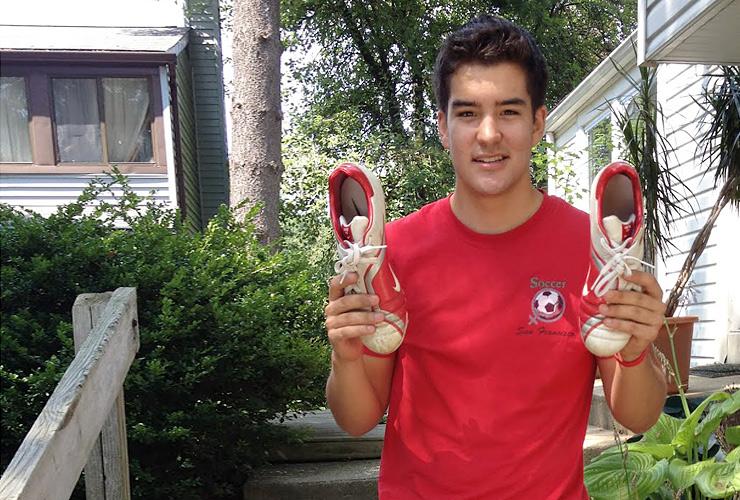
Nia Hampton
Media and Communication Studies, Spring 2014
Fundraising Initiative Intern, Station North Arts and Entertainment District
Hampton worked with Baltimores Station North Arts and Entertainment District, supporting their mission to create a place where artists and entertainment venues can flourish within a healthy, economically diverse residential community. She researched grant opportunities and helped plan and execute community arts programming. Hampton is most proud of a grant proposal that seeks to make summer art courses available to local elderly residents.
Ive learned the power of being from the same community youre trying to help. I dont need to go across the country or half-way around the world to make a positive impact, and I can use tools I already have to accomplish great things.
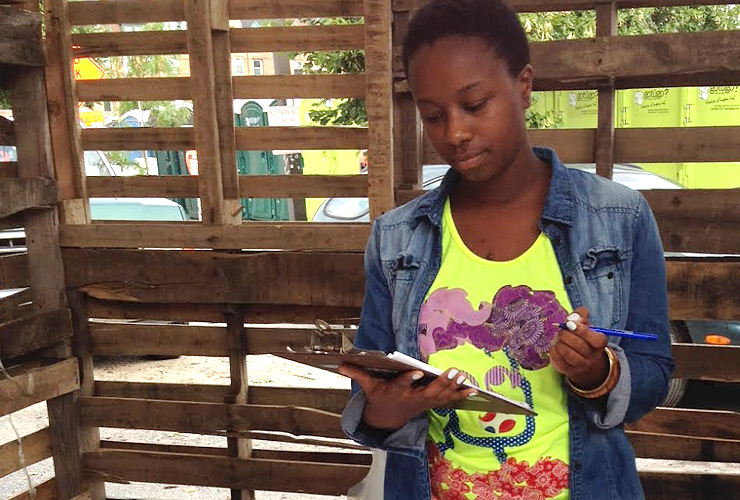
Samantha Hawkins
Anthropology and Interdisciplinary Studies, Spring 2014
Intern, National Geographic Society
As an intern with the Image Collection at National Geographic, Hawkins researched, labeled and catalogued images in preparation for online and print publication. She was challenged with the task of identifying people, locations and animal species from all regions of the world and all eras of history. Her detail-focused research has enabled National Geographic to share with the public powerful photographs that she hopes will inspire people to care more deeply for the world around them.
Ive always loved the idea of changing the world; Ive just never known how or really known anyone that has. My time at National Geographic has changed this perspective entirely. Every day I work with individuals whose mission is to inform others about our planet. Ive learned that every little bit of work helps and that making an impact doesnt come easily. It may take a lot of perseverance and a little luck, but it certainly is possible.
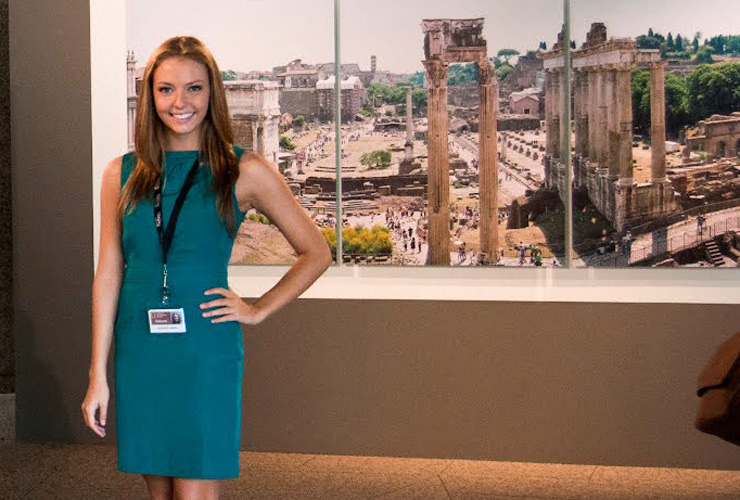
Joshua Kurikeshu
Information Systems and Visual Arts, Fall 2012
Project Lead Intern, General Electric
Kurikeshu interned at GE through the companys Information Technology Leadership Program, where he designed an automated self-service solution for GEs Active Directory group management. His work will help the company operate more efficiently and with greater security, and it will impact all seven GE divisions, from Aviation to Healthcare.
One of the greatest lessons Ive learned was how to take initiative. The ITLP internship has given me the ability to identify a problem and be the change to better the environment around me. It has also taught me how to use my most vital resourcepeople. I now know how networking can shape how much you can learn. The more you network, the more you learn, and the more you can impact the world.
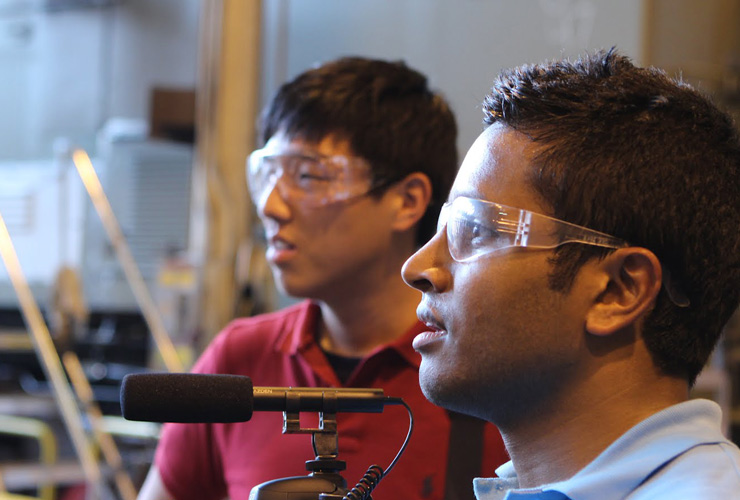
Michael Lofthus
Media and Communications Studies, Spring 2013
Media and Multimedia Specialist Intern, American Friends Service Committee
Lofthus worked as a media and multimedia specialist intern for AFSC, a non-profit committed to upholding principles of social justice, nonviolence and humanitarianism in the U.S. and abroad. He generated story ideas and developed and edited content for multimedia projects, outreach events, digital media and print materials, highlighting civil rights learning and youth empowerment programs in Baltimore and Washington D.C.
My experience has taught me never underestimate the power of the individual in a collective effort. With a little direction from the right people, any skill or talent can be harnessed to influence movements on a tremendous scale. In the presence of those who are passionate about their work, anything is possible.
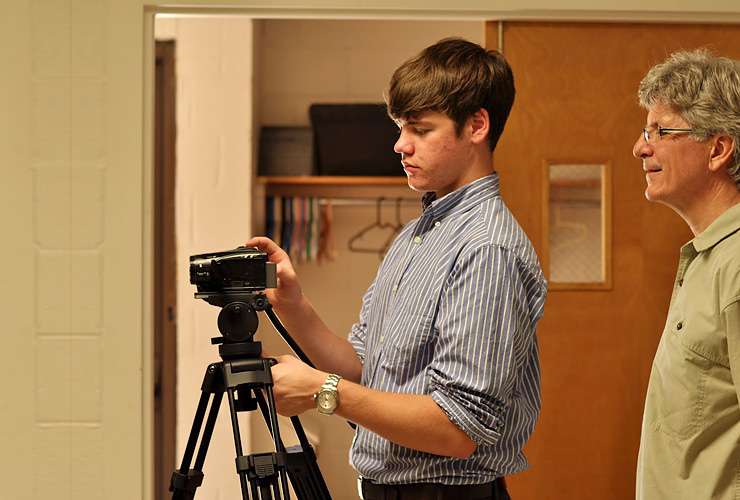
Paulette Mensah
Health Administration and Policy, Fall 2012
Research Assistant, Hopkins Center for Health Disparity Solutions
Mensahs work at the Johns Hopkins Bloomberg School of Public Health focused on inputting and analyzing data for the Cultural Quality Collaborative. Through surveys of staff and patients, the CQC assesses the cultural competency of participating hospitals with the goal of alleviating health disparities. Through this placement, Mensah also attended the International Conference on the Health of the African Diaspora.
I have always been interested in serving minority and limited English proficiency populations, and now I am. When hospitals improve their level of cultural competency, they improve healthcare delivery for their patients and the work environment for their employees. The analysis I have done is already making a difference.
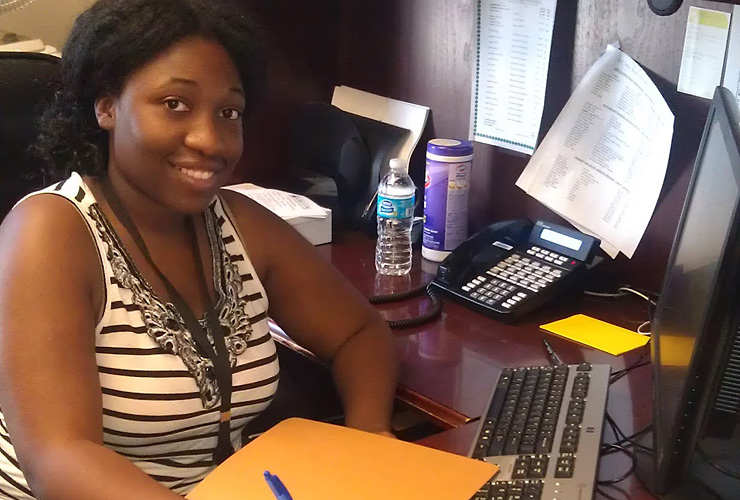
Felix O. Nwogbo, Jr.
Biochemistry and Molecular Biology, Spring 2013
Summer Research Intern, Duke University
Nwogbo conducted basic science research in the biochemistry lab of Dr. Richard Brennan through Duke Universitys Summer Research Opportunity Program. In addition to learning about structural biology and research protocols, Nwogbo developed problem-solving strategies and new ways of thinking as a laboratory scientist.
Ive learned that experiments dont always go according to plan and you must be able to ask the right questions to figure out what is going on. The work Im doing is basic science, but in the long run it has great potential to become translational research and help millions deal with chronic infections.
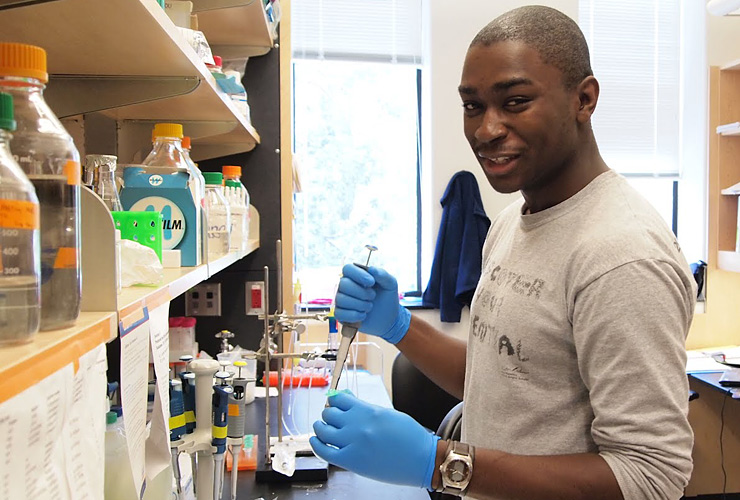
Megan Pejsa
Psychology, Spring 2013
Research Assistant, Johns Hopkins Bayview Medical Center
As a research assistant in the burn unit at Johns Hopkins Bayview, Pejsa completed clinical interviews with patients to assess how they were coping in the months following their hospital treatment and discharge. She assessed anxiety-related symptoms at one, six, twelve and 24 months following their burn injury.
The general public may only recognize PTSD in conjunction with veterans of war, but others also experience this anxiety disorder. The raw data I collected will be used to improve interventions for people at-risk of developing PTSD following a severe burn injury so that they have an overall better quality of life.
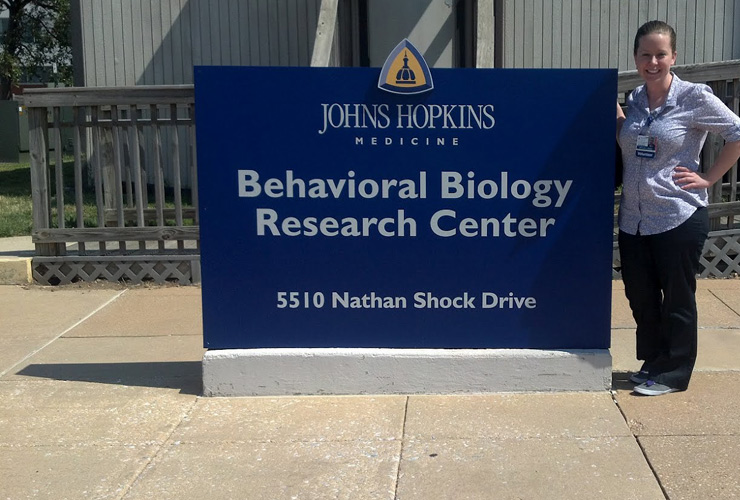
Manpreet S. Suri
Information Systems, Spring 2014
McNair Summer Research Fellow, UMBC
Through the McNair Summer Research Fellowship program, Suri completed an independent research project designing assistive technology for the visually impaired. His experience included writing code, building and programming hardware, designing and printing three-dimensional models, and prototyping a device for this population.
When I realized that there are 285 million visually impaired people in the world, I started to understand that my project was much more far-reaching than I originally anticipated. I have learned that every project we work on is a part of a bigger picture and to never underestimate the impact of our research. Visually impaired people deserve to have the same opportunities as sighted people and it gives me great pleasure to design and build a device that caters to their needs.
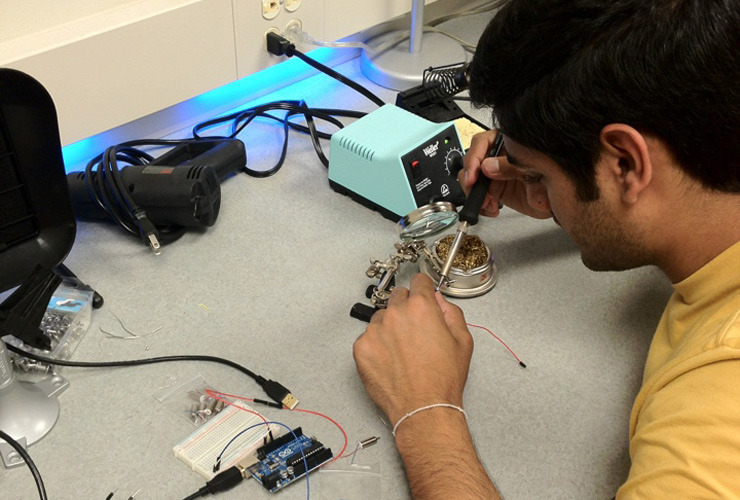
Molissa Udevitz
Environmental Studies and Dance, Spring 2015
Squad Leader Intern, Alaska Department of Natural Resources Division of Forestry
Based in Palmer, Alaska, Udevitz supervised a team of interns in the fieldsurveying and removing invasive plants, making a trail handicap accessible, and restoring stream banks to improve salmon access to spawning grounds. Udevitz also became wildland firefighter certified and collaborated with natural resource management professionals on other projects.
Before this summer, I knew I wanted to help solve the environmental challenges our world faces, but these problems often seem insurmountable. Ive realized that I dont need to come up with a grand solution; I can join this network of people working to protect the environment, and our individual projects combined will have a large, positive impact.
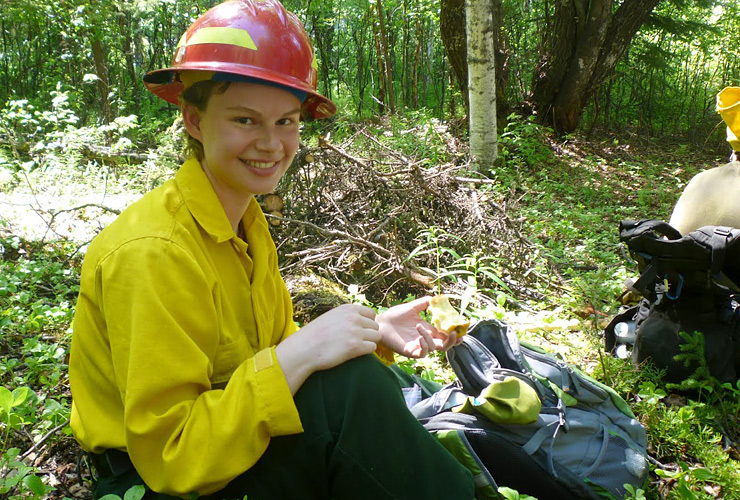
Jennie Williams
American Studies, Spring 2014
Summer Serve Assistant Coordinator and Counselor, United Way of Frederick County
Williams served as an assistant coordinator and counselor for United Way of Frederick Countys new Summer Serve program. There she created opportunities for teen volunteers to do service work through non-profit partnerships and guided them through reflection on their service experiences.
I have contributed to projects that fight for issues I am passionate about: poverty, homelessness, womens health and hunger. Through this internship I have now also met the men and women who are responsible for creating organizations devoted to those causes.
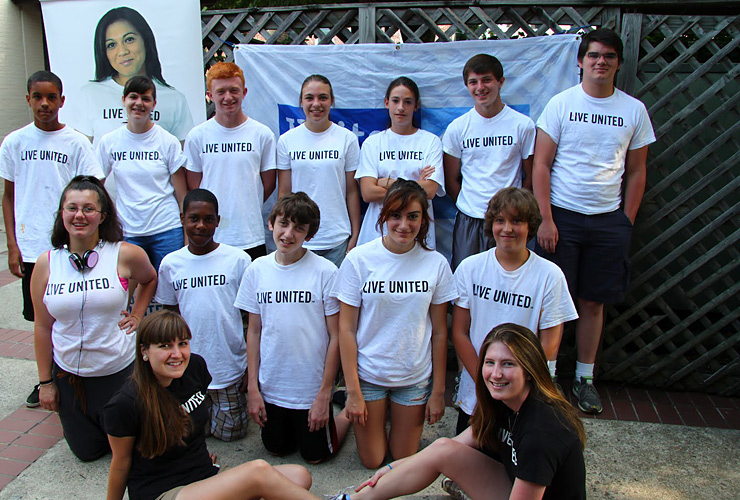
Fahad Zafar
Computer Science (Ph.D.), Fall 2014
Software Engineer, Google
Working at the Googleplex in Mountain View, California was an eye-opening experience for Zafar, who assisted the YouTube editor team with developing new video effects and integrating an external code source into their platform. His tasks ranged from helping to solve large data problems to navigating the subtleties of visual presentation.
Understanding the development life-cycle of software used by millions of peoplewatching all the pieces that solve complex problems come togetherwas truly an unforgettable experience. Working at a company with such a large user base has changed my perspective on practical software development.
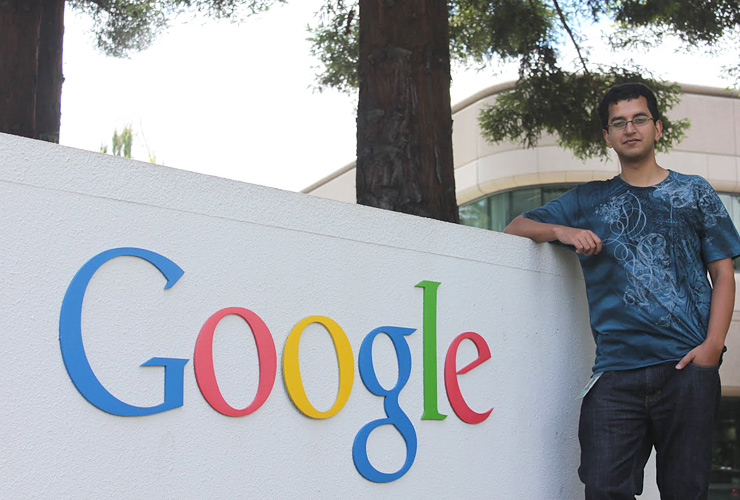
(8/17/12)
